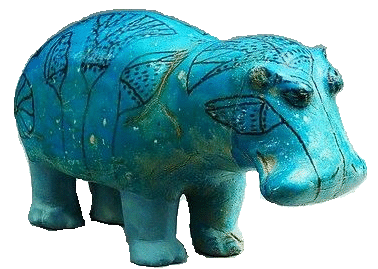
7/16 ヘーゲル「精神現象学」1807:はじめに
7/16 Einleitung,
Phänomenologie des Geistes, 1807

☆ ★このページはヘーゲル「精神現象学」の序文の後につづく「はじめに」の部分です。 INTRODUCTION, The Phenomenology of Mind (Einleitung, Phänomenologie des Geistes) ヘーゲル「精神現象学」の一般的解説は「ヘーゲル『精神現象学』1807ノート」を、参照してくだ さい。課題書とテキストについては「G.W.F.ヘーゲル『精神現象 学』1807年への入門」を参照してください。
☆
| Die
Vollständigkeit der Formen des nicht realen Bewußtseins wird sich durch
die Notwendigkeit des Fortganges und Zusammenhanges selbst ergeben. Um
dies begreiflich zu machen, kann im allgemeinen zum Voraus bemerkt
werden, daß die Darstellung des nicht wahrhaften Bewußtseins in seiner
Unwahrheit nicht eine bloß negative Bewegung ist. Eine solche
einseitige Ansicht hat das natürliche Bewußtsein überhaupt von ihr; und
ein Wissen, welches diese Einseitigkeit zu seinem Wesen macht, ist eine
der Gestalten des unvollendeten Bewußtseins, welche in den Verlauf des
Weges selbst fällt, und darin sich darbieten wird. Sie ist nämlich der
Skeptizismus, der in dem Resultate nur immer das reine Nichts sieht,
und davon abstrahiert, daß dies Nichts bestimmt das Nichts dessen ist,
woraus es resultiert. Das Nichts ist aber nur, genommen als das Nichts
dessen, woraus es herkömmt, in der Tat das wahrhafte Resultat; es ist
hiemit selbst ein bestimmtes und hat einen Inhalt. Der Skeptizismus,
der mit der Abstraktion des Nichts oder der Leerheit endigt, kann von
dieser nicht weiter fortgehen, sondern muß es erwarten, ob, und was ihm
etwas Neues sich darbietet, um es in denselben leeren Abgrund zu
werfen. Indem dagegen das Resultat, wie es in Wahrheit ist, aufgefaßt
wird, als bestimmte Negation, so ist damit unmittelbar eine neue Form
entsprungen, und in der Negation der Übergang gemacht, wodurch sich der
Fortgang durch die vollständige Reihe der Gestalten von selbst ergibt. |
【7】
非
現実的な意識の形態の完全性は、その進行と関連性の必要性によって自ら明らかになる。これを理解するために、一般的に、非真実的な意識の表現は、その非真
実性において、単なる否定的な動きではないことをあらかじめ指摘しておこう。このような一方的な見方は、自然意識が本来持っているものであ
り、この一方性
をその本質とする知識は、未完成の意識の一形態であり、その過程そのものに属し、その過程の中で現れるものだ。それは、結果に常に純粋な無しかを見ず、こ
の無が、それが結果であるものの無を決定するものであることを抽象的に無視する懐疑論である。しかし、無は、それが由来するものの無として捉えた場合、実
際には真の結果であり、それ自体が決定的なものであり、内容を持っている。無や空虚の抽象化で終わる懐疑主義は、そこからさらに進むことはできず、同じ空
虚な深淵に投げ込むべき新しいものが現れるかどうかを待つしかない。一方、結果が真実として、特定の否定として理解されると、それによって直接的に新しい
形が生まれ、否定によって移行が行われ、その結果、完全な形態の系列による進展が自ずと生じることになる。 |
☆ ヘー ゲル精神現象学はじめに(第7節)
★ ハイデガーのコメンタリー
(7/16)ハイデガー「ヘーゲルにおける経験概念」:ヘーゲル「精神現象学」はじめに第7節の解説
☆
| ・実在的ではない意識の形態が抜け目なく出揃
う事にむけられ問いを展開する(131) |
|
| THE SEVENTH SECTION develops the inquiry into the
"complete system of the forms of unreal consciousness."
These are the Shapes of phenomenal knowledge, since this
knowledge has not yet appeared to itself in its appearance,
and thus is not yet placed in its reality. The complete
emergence of the Shapes can result only from the course of
this emergence. That course is the progression of appearance.
It must be a necessary progression, for only then can
it be sure of that cohesion which tolerates no accidental
gaps. What is it that constitutes the necessity of progression
in the course of the presentation? In what does the nature
of the progression consist?
To find the right answer here, we must not accept the
view which natural consciousness in general takes of the
presentation of phenomenal knowledge. That view is on
principle one-sided; for natural representation always looks
only at one side-which it does not even take for one side
but for the whole-the side of its direct encounter with the
object. Natural consciousness never looks to the other side,
toward the Being of beings. This essential one-sidedness. of
natural consciousness may even enter as a specific Shape of
consciousness. It must display itself within the history of its
formation. It shows itself as that skepticism which in all
knowing and conduct ends up with the conclusion that the
knowledge supposedly attained always amounts to nothing.
This skepticism, i.e., a sheer addiction to doubt, is absolute
sophistry, and always results in empty nothingness.
How, in this Shape of consciousness, is the one-sidedness
of natural knowledge raised to the status of a known principle?
In this way, that natural consciousness always and
everywhere finds only beings, only phenomena, and judges
everything it meets according to these findings. Whatever
is not of the kind of these findings falls victim to the ukase
that "such things don't exist." One of the things that are
not of the kind of the findings of natural consciousness
which finds only beings-one of these things is Being. This
is why the appearance of what appears, the reality of what
is real, count for nothing within the field of vision of
natural consciousness. In the judgment of natural consciousness,
any step taken by the presentation of phenomenal
knowledge will lead to nothing. In fact, that presentation
never gets beyond its first step which has already led it to
nothing. How, and which way, is the presentation to go on
from there? Any progression remains denied to it-unless
it constantly allows some other Shape of phenomenal knowledge
to come its way somehow, in order to find in it the
supposed appearance with which it will again wind up in
nothingness.
The view that natural consciousness must cherish whenever
it judges the presentation of phenomenal knowledge
also finds expression of ten enough in the allegedly philosophical
objections that are raised against Hegel's philosophy.
In anticipation of such objections, Hegel himself says
in the present section merely that the nothingness to which
the presentation of phenomenal knowledge is supposed to
lead is not empty but "the nothingness of that from which
it results." However, appearance results from what appears.
Therefore, if the result which the progressing presentation
yields for the presentation stems from where the progression
started, and not from where its next step is yet to take it,
then it is not surprising that the course of the presentation
continues to seem strange to natural consciousness. It is
thus all the more necessary from the outset to prevent this
one-sided view, which natural consciousness takes of the
progression of the presentation, from throwing everything
into confusion.
|
第7節では、「非現実的意識の形態
の完全な体系」に関する考察が展開される。これらは現象的知識の形態であり、この知識は、その出現においてまだそれ自体に現れていないため、現実の中に位
置付けられていないからだ。形態の完全な出現は、この出現の過程からしか生じ得ない。その過程は現象の進展である。それは必然的な進展でなければならな
い。なぜなら、そうであるからこそ、偶然の隙間を許さない凝集性を保証できるからである。現象的知識の表象の過程における進展の必然性を構成するものは何
なのか?進展の本質は何に存在するのか?この問いに正しい答えを見つけるためには、自然意識が現象的知識の表象について一般的に持つ見方を採用してはなら
ない。その見方は原則的に一方的である。なぜなら、自然表象は常に、対象との直接的な遭遇の側面のみを、その側面としてではなく全体として捉えるからであ
る。自然意識は、もう一方の側面、すなわち存在の側を見ない。この自然意識の本質的な一方的性は、意識の特定の形態として現れる可能性もある。それは、そ
の形成の歴史の中で現れなければならない。それは、すべての認識と行動において、得られたとされる知識が常に無に帰する結論に至る懐疑主義として現れる。
この懐疑主義、すなわち疑いの純粋な依存は、絶対的な sophistry
であり、常に空虚な無に終わる。この意識の形態において、自然知識の一面性が、知られた原理の地位に高められるのは、どのようにしてか?このようにな、自
然意識は常にどこでも存在のみ、現象のみを発見し、出会うすべてをこれらの発見に基づいて判断する。これらの発見の種類のいずれにも属さないものは、「そ
のようなものは存在しない」という命令の犠牲となる。自然意識が存在するものとしてのみ発見するものの種類のいずれにも属さないものの一つが、存在であ
る。これが、自然意識の視野の範囲内では、現れるものの出現、現実の現実性が何の価値も持たない理由である。自然意識の判断において、現象的知識の提示が
踏み出すいかなる一歩も、何にも至らない。実際、その提示は、既に何にも至っていない最初のステップを越えることはない。そこから、提示はどのように、ど
のようには進むのか?いかなる進展も、それには否定される——ただし、それが常に何らかの形で他の現象的知識の形態を許容し、その中で仮定された出現を見
いだすことで、再び無に帰すことを繰り返す場合を除いては。現象的知識の提示を判断する際に自然意識が抱く見解は、ヘーゲルの哲学に対して提起されるいわ
ゆる哲学的反論においても十分に表現されている。このような反論を予見して、ヘーゲル自身は本節において、現象的知識の提示が導くとされる無は空虚なもの
ではなく、「それ自体から生じる無」であると述べている。しかし、現象は現象から生じる。したがって、進行する表象が表象に対して生じる結果が、進行の出
発点から生じるものであって、次のステップがまだ到達していない場所から生じるものではないのであれば、表象の過程が自然意識にとって奇妙に思えることは
不思議ではない。したがって、表象の進行に対して自然意識が抱くこの一方的な見方が、すべてを混乱に陥れることを、最初から防ぐことがより必要となる。 |
リ ンク
文 献
そ の他の情報
cc
Copyleft, CC, Mitzub'ixi Quq Chi'j, 1996-2099
☆
 ☆
☆